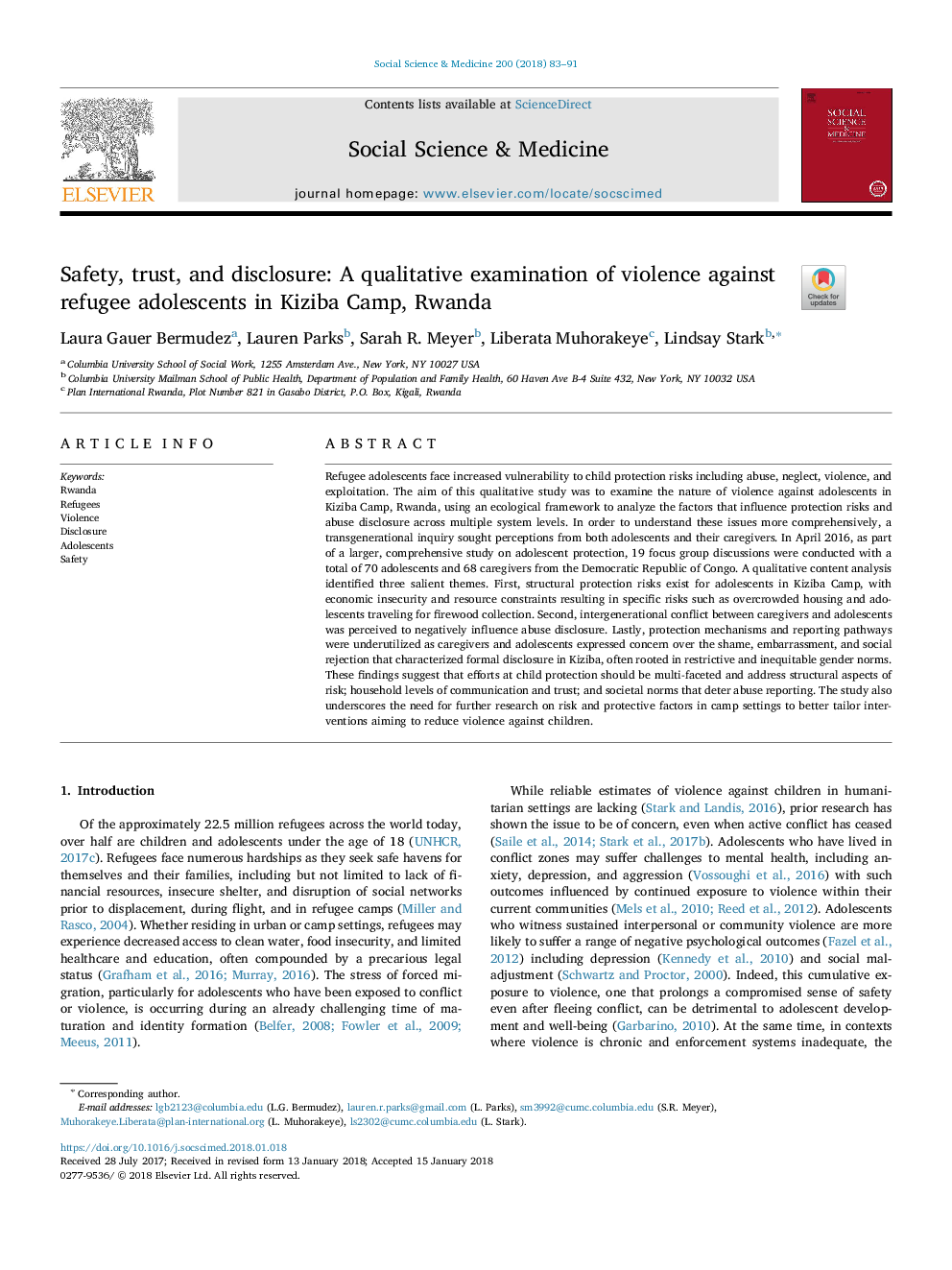ترجمه فارسی عنوان مقاله
ایمنی، اعتماد و افشا: بررسی کیفی خشونت علیه نوجوانان پناهنده در کمپ کیزیبا، رواندا
عنوان انگلیسی
Safety, trust, and disclosure: A qualitative examination of violence against refugee adolescents in Kiziba Camp, Rwanda
| کد مقاله | سال انتشار | تعداد صفحات مقاله انگلیسی |
|---|---|---|
| 142431 | 2018 | 9 صفحه PDF |
منبع

Publisher : Elsevier - Science Direct (الزویر - ساینس دایرکت)
Journal : Social Science & Medicine, Volume 200, March 2018, Pages 83-91
ترجمه کلمات کلیدی
رواندا، پناهندگان خشونت، افشای، نوجوانان، ایمنی،
کلمات کلیدی انگلیسی
Rwanda; Refugees; Violence; Disclosure; Adolescents; Safety;

